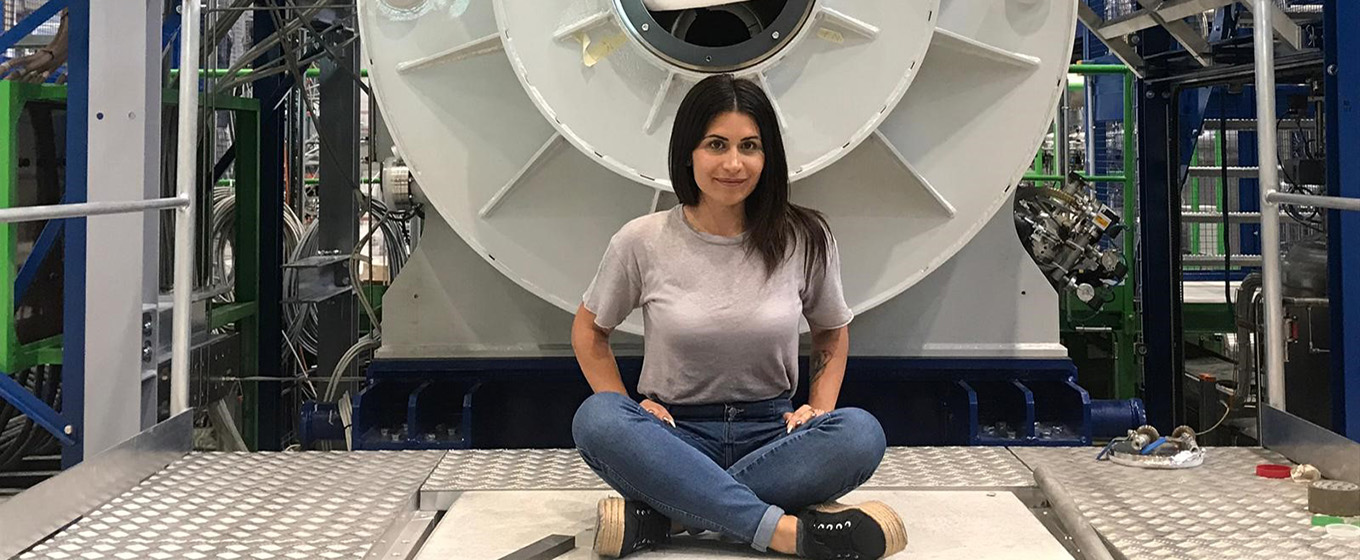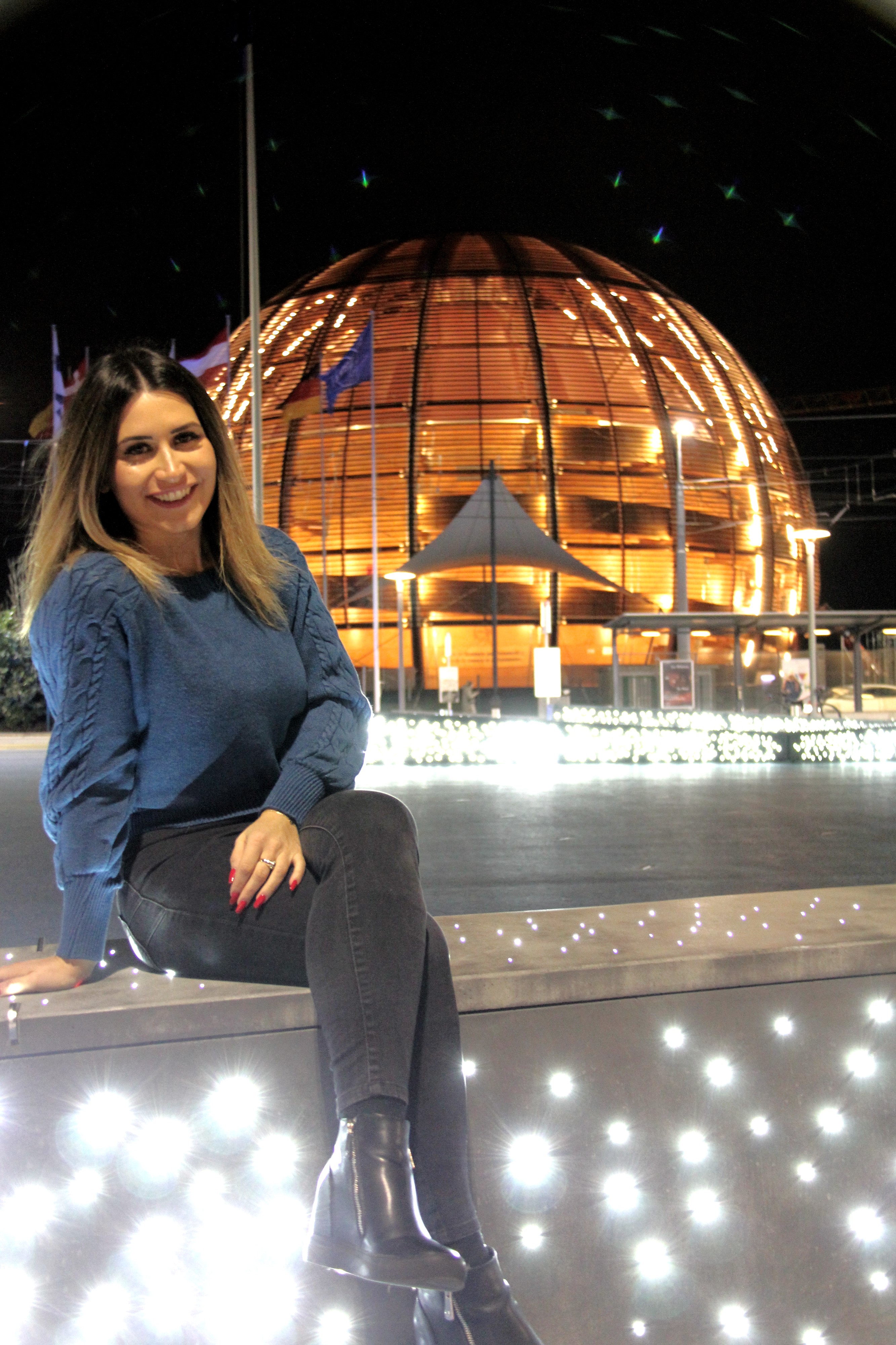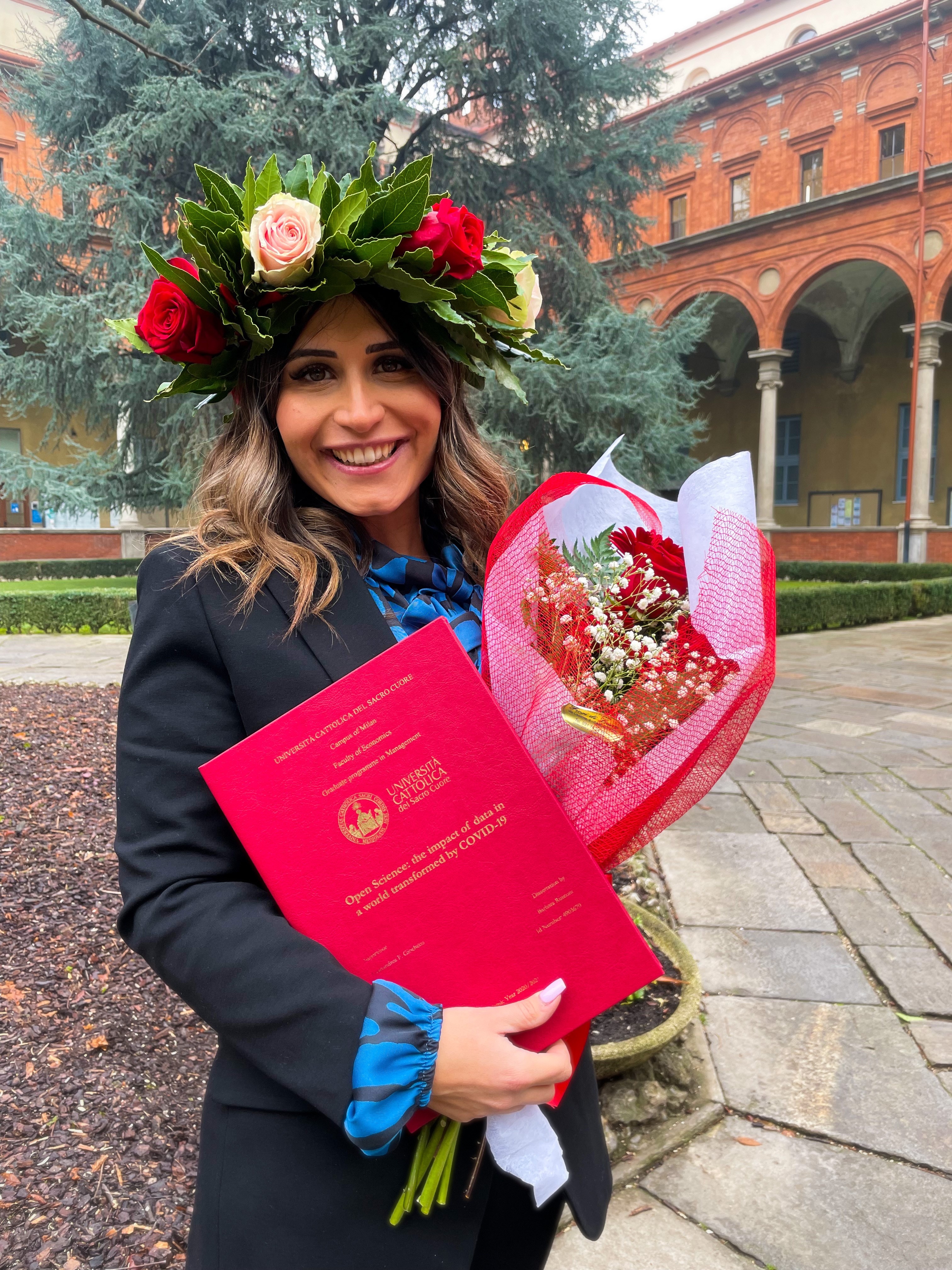Work, Study, and Self-improvement in the Online World

At a time when the Internet and technology command our lives more than ever, working online in a place that invented the World Wide Web (WWW) and finding yourself studying abroad from the comfort of your home amidst a global pandemic, can open unusual new roads of creativity and experiences.
The Information Age, in which technology and the Internet rule our daily lives, is the cornerstone of our generation. Meetings, lectures, and even social interactions with our friends and loved ones online have become the norm, even more so living through a global pandemic. Incidentally, the World Wide Web that characterises much of our lives nowadays was invented by British scientist Tim Berners-Lee in 1989 at the European Organization for Nuclear Research (CERN) in Geneva, one of the world's largest and most respected centres for scientific research. We sat down with a recent graduate of Università Cattolica del Sacro Cuore, Barbara Rusconi, who now works as a Financial Support Officer at CERN, to see how she seeks out education and navigates working online in a world where the office has become an extension of our apartments.
 Barbara comes from a village close to the town of Monza in Northern Italy. After obtaining her bachelor's degree in Business Administration and Management at the nearby Università Cattolica, Milan campus, Barbara soon acquired a position at CERN in Geneva, Switzerland in 2017. Yet, in 2019 she took a step that would leave many puzzled. Barbara left her stable and already respectable position in the world-famous organisation and returned to Università Cattolica to acquire a master’s degree. However, what many don’t know is that behind this step was Barbara’s determination and grit. “I felt a missing piece in my Curriculum Vitae. At that moment I realised I wasn't finished with my studies,” says Barbara reflecting on the inspiration to leave. For Barbara, education has always come first, and she encourages others to do the same. “I am now more enriched and don’t feel these gaps anymore. I can confront my work colleagues on the same level,” observes Barbara.
Barbara comes from a village close to the town of Monza in Northern Italy. After obtaining her bachelor's degree in Business Administration and Management at the nearby Università Cattolica, Milan campus, Barbara soon acquired a position at CERN in Geneva, Switzerland in 2017. Yet, in 2019 she took a step that would leave many puzzled. Barbara left her stable and already respectable position in the world-famous organisation and returned to Università Cattolica to acquire a master’s degree. However, what many don’t know is that behind this step was Barbara’s determination and grit. “I felt a missing piece in my Curriculum Vitae. At that moment I realised I wasn't finished with my studies,” says Barbara reflecting on the inspiration to leave. For Barbara, education has always come first, and she encourages others to do the same. “I am now more enriched and don’t feel these gaps anymore. I can confront my work colleagues on the same level,” observes Barbara.
Going back to Università Cattolica was a natural choice for Barbara as she knew she wanted to study in English and the Master of Science in Management at Università Cattolica offered the ideal opportunity for this. “I saw that this kind of path could really open a lot of doors for me,” recalls Barbara, as not only were the studies conducted in English, but it offered her the opportunity to go on a study abroad programme in one of her dream destinations at The University of California, Los Angeles (UCLA).
As we know, in early 2020 the first wave of the COVID-19 pandemic hit, and our lives were suddenly brought to a halt for many months to come. Nevertheless, the pandemic did not stop Barbara from applying for the study abroad programme at UCLA in 2021 even though all the study activities were transferred online. While the usual difficulties such as time zones and new study methods were not big issues for Barbara, she admits not being able to attend lectures in presence was her only setback. Despite the classes being held remotely, Barbara considers UCLA one of her most valuable experiences. “Every time we were doing projects, interventions or even just writing on the class forums, we were always required to bring real-life examples, think of practical applications of the theory we were studying, and constantly taking a very hands-on approach,” says Barbara. This rule pushed her to become more inventive and think outside the box.
After finishing her programme at UCLA, Barbara moved on to her thesis “The Impact of Data in a World Transformed by COVID-19” at Università Cattolica. Her topic was partly inspired by the time spent at CERN, where Open Science or the sharing of scientific data on IT infrastructures with the entire scientific community is one of the core goals. Together with what she learned from guest lecturers and visitors they had during the two years of the master’s degree studies, Barbara slowly started to piece her thesis topic together. When the pandemic eventually hit, COVID-19 offered a great opportunity for a case study in the Open Science context and Barbara’s main goal was to research how the data was used while showing that business and non-profit organisations can and should work together, thus merging the two worlds.
 Now Barbara has come full circle and after graduating with honours in December 2021 and acquiring the knowledge she felt she was lacking, she returned to CERN where she works on the management of the financial aspects of HE, H2020, and FP7 funded projects with a Staff position in the Financial and Administration Processes Department. While she once again lives in Geneva and has the opportunity to go to the office from time to time, much of her work is still influenced by the pandemic and working from home is the usual state of affairs.
Now Barbara has come full circle and after graduating with honours in December 2021 and acquiring the knowledge she felt she was lacking, she returned to CERN where she works on the management of the financial aspects of HE, H2020, and FP7 funded projects with a Staff position in the Financial and Administration Processes Department. While she once again lives in Geneva and has the opportunity to go to the office from time to time, much of her work is still influenced by the pandemic and working from home is the usual state of affairs.
Even though the pandemic characterised much of Barbara’s journey, it left some positive marks in terms of digital and employability skills in an economy primarily based upon information technology. “I’ve become really flexible with software and programmes, for me, it’s normal to attend online meetings and work in a digitally-connected team.” On top of that, thanks to what some would perceive as negative aspects of staying at home, such as being on the computer all the time, Barbara became more creative in the digital field, citing making engaging presentations and easily learning new programmes as some of the things that help in her work today.
Barbara’s story is exciting and inspiring. It proves that often taking a step back from one’s career and acquiring further knowledge is a valuable investment in the future. Based on her experience, Barbara always tries to motivate those around her, “I left a stable job, went back to university just before the pandemic hit. It wasn’t easy, but I overcame every obstacle. My advice? Be brave and never give up.”

